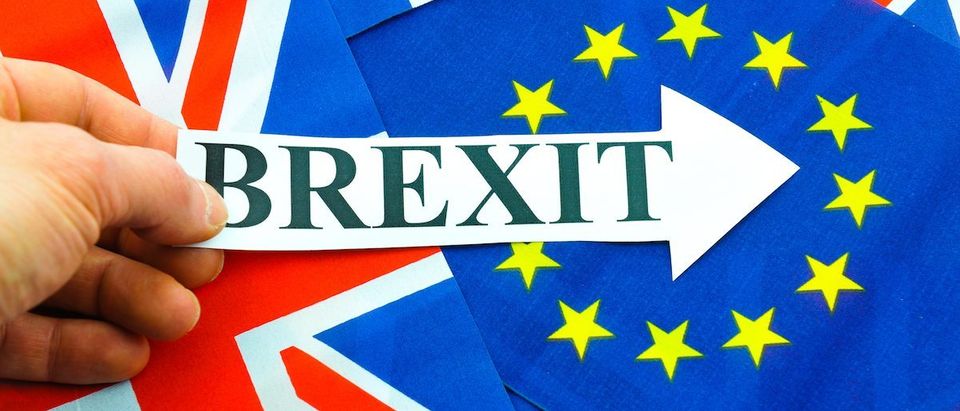The economic and geopolitical prospects for Great Britain look gloomy and plagued with uncertainty following the June 23 Brexit decision, according to some scholars.
Fred Bergsten, member of the President’s Advisory Committee for Trade Policy and Negotiations, thinks the decision to leave the EU was largely a mistake for the UK.
“I would weigh Great Britain is not better off. The real question, is how much worse is it going to be?” Bergsten told The Daily Caller News Foundation. What will ultimately determine the UK’s fate will “depend on the terms they negotiate with the EU and whatever substitute arrangements they can make with other trading partners like the United States,” Bergsten added.
Bergsten is not enthusiastic about UK’s ability to negotiate these deals. The process will be “long-term” and “fraught with huge uncertainty,” which is why he predicts it “is not going to happen,” Bergsten said.
Uncertainty is not solely relegated to the long-term. In the meantime, “there will still be a lot of uncertainty, which will dampen European and British growth,” Bergsten added. Falling growth will be somewhat “offset by the weaker exchange rate.”
Great Britain attempted to offset the economic fallout post-Brexit through what is called competitive devaluation. Competitive devaluation, defined in the most simple terms, describes a scenario in which one country attempts to gain trade advantage over another country (or countries) by allowing the exchange rate of their currency to fall in relation to other countries.
Bergsten thinks this strategy is “a clever way to get the exchange rate down and give [Great Britain] a little boost to their manufacturing,” but he does not “think this devaluation on balance will hold.”
For Great Britain, Brexit was “all downside,” Bergsten told TheDCNF. “The only question is how much.” He believes the downside is considerable enough that they “will reverse course before it becomes irreversible.”
Vincent Reinhart, a resident scholar at the American Enterprise Institute, also sees Great Britain’s future fraught with uncertainty. He says British citizens “voted to leave, but they didn’t tell us where they were going.”
What will really predict the future of Great Britain are the trade deals they can broker with “Europe and the rest of the world,” he added.
A great deal of Great Britain’s future will also depend on negotiations “with itself” about how to legislate the regulations now imposed upon them from within the EU, Reinhart said.
“You are talking about a window of two years for the EU relationship, five years or more for the relationship with the rest of the world to be settled, and then ten years for them to legislate everything they need to do,” Reinhart told TheDCNF. This time frame includes “a lot of uncertainty.”
“By creating that uncertainty, they basically inflicted an aggregated demand shock on themselves. The depreciation of the pound, the reduction in yields, was a way of sharing that loss with the rest of the world,” Reinhart explained.
“Could the UK wind up better as a result? It’s possible. Will we know? Come back in ten years,” Reinhart concluded.
Carlo Cottarelli, former director of the Fiscal Affairs Department of the International Monetary Fund (IMF), said that the UK will lose about 4.5 percent of its gross domestic product (GDP) as a result of Brexit. “Some of this loss in GDP is due to the uncertainty shock discussed,” Cottarelli told TheDCNF.
Over the long term, he said that most projections will be “based on how much the loss of trade” will affect countries outside of Europe. Cottarelli added that even if “the UK loses vis-à-vis Europe, it may gain with the rest of the world.”
Cottarelli believes that the future of Great Britain post-Brexit “really depends a lot on the EU trade deals that the UK will strike in the next several years.”
Desmond Lachman, a distinguished senior fellow at the R Street Institute, is pessimistic about the EU’s future. “Europe has essentially had a lost decade,” he told TheDCNF. “If you just look at Europe’s performance in the past, it really is vastly different than the game was supposed to be.”
He added that the Euro was intended to bring “prosperity” and “political nirvana,” though “that certainly hasn’t been the case.”
“Europe is only now recovering, on average, to the point they were at in 2008,” Desmond said, pointing to Italy’s lack of growth as an example. “After the Brexit vote, you are seeing declining support for the European project. In places like France, Spain, and even Germany, something less than 50 percent of the population thinks the EU is a good idea.”
Desmond said that his pessimism makes him “a lot less confident that this exercise is going to end to happily.”
Send tips to robert@dailycallernewsfoundation.org
All content created by the Daily Caller News Foundation, an independent and nonpartisan newswire service, is available without charge to any legitimate news publisher that can provide a large audience. All republished articles must include our logo, our reporter’s byline and their DCNF affiliation. For any questions about our guidelines or partnering with us, please contact licensing@dailycallernewsfoundation.org.


